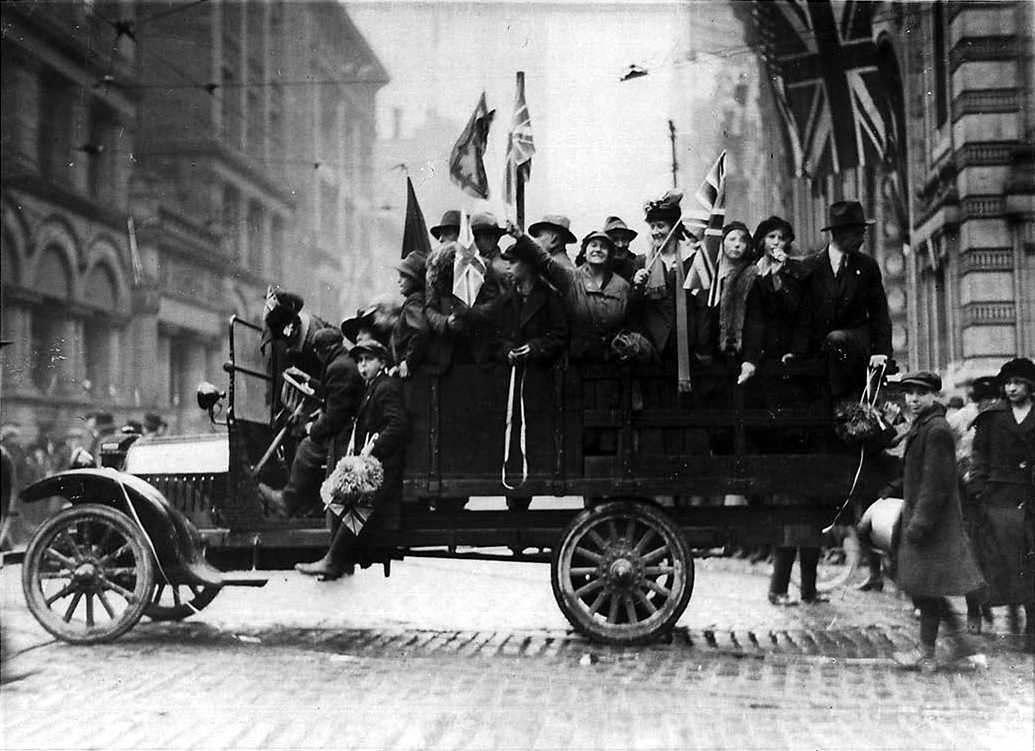December 1917 saw Jack still in hospital recovering from appendicitis (and the complications from the surgery.) On December 17th Jack was discharged from the hospital. Upon leaving the hospital, he was given a new kit of clothing (new boots, uniform, etc.) Two days after being discharged from the hospital, Jack reported back to the dispensary do to an abraded right heel. The cause? Ill fitting boots. To protect his foot, the boot was cut and for the next five months Jack could not wear any type of shoe or even walk on it. To make matters worse, the heel soon became infected. Jack soon recovered from this latest medical emergency and sent to the Canadian Convalescent Hospital at Woodcote Park in Epsom to recover further.

On March 11, 1918, Jack was pronounced fit for duty and transferred to the Canadian Engineer Training Depot (CETD) in Seaford, where he trained to head back to the front. For whatever reason this did not occur and in May 1918, Jack was taken on strength with the 1st Canadian Engineer Reserve Battalion, where he worked as a driver.
On November 9th 1918 (a year since Passchandeale) Jack reported to the 13th Canadian Hospital in Hastings with a case of influenza. The 1918 Influenza pandemic would eventually kill 20 million people worldwide. Many soldiers at the front and back in England fell victim to the virus.

But with all the tragedy, some good finally came. At 11:00am on November 11, 1918, the armistice was announced. The war was over.

For Jack, it brought an end to all most two years of overseas service (with 9 months of service at the front.)
Michael McDonagh, diary entry (11th November, 1918)
Looking through my window I saw passers by stopping each other and exchanging remarks before hurrying on. They were obviously excited but unperturbed. I rushed out and inquired what was the matter. "The Armistice!" they exclaimed, "The War is over!"I was stunned by the news, as if something highly improbable and difficult of belief had happened. It is not that what the papers have been saying about an Armistice had passed out of my mind, but that I had not expected the announcement of its success would have come so soon. Yet it was so. What is still more curious is that when I became fully seized of the tremendous nature of the event, though I was emotionally disturbed, I felt no joyous exultation. There was relief that the War was over, because it could not now end, as it might have done, in the crowning tragedy of the defeat of the Allies. I sorrowed for the millions of young men who had lost their lives; and perhaps more so for the living than for the dead - for the bereaved mothers and wives whose reawakened grief must in this hour of triumph be unbearably poignant. But what gave me the greatest shock was my feeling in regard to myself. A melancholy took possession of me when I came to realize, as I did quickly and keenly, that a great and unique episode in my life was past and gone, and, as I hoped as well as believed, would never be repeated. Our sense of the value of life and its excitements, so vividly heightened by the War, is, with one final leap of its flame today, about to expire in its ashes. Tomorrow we return to the monotonous and the humdrum. "So sad, so strange, the days that are no more!"





No comments:
Post a Comment